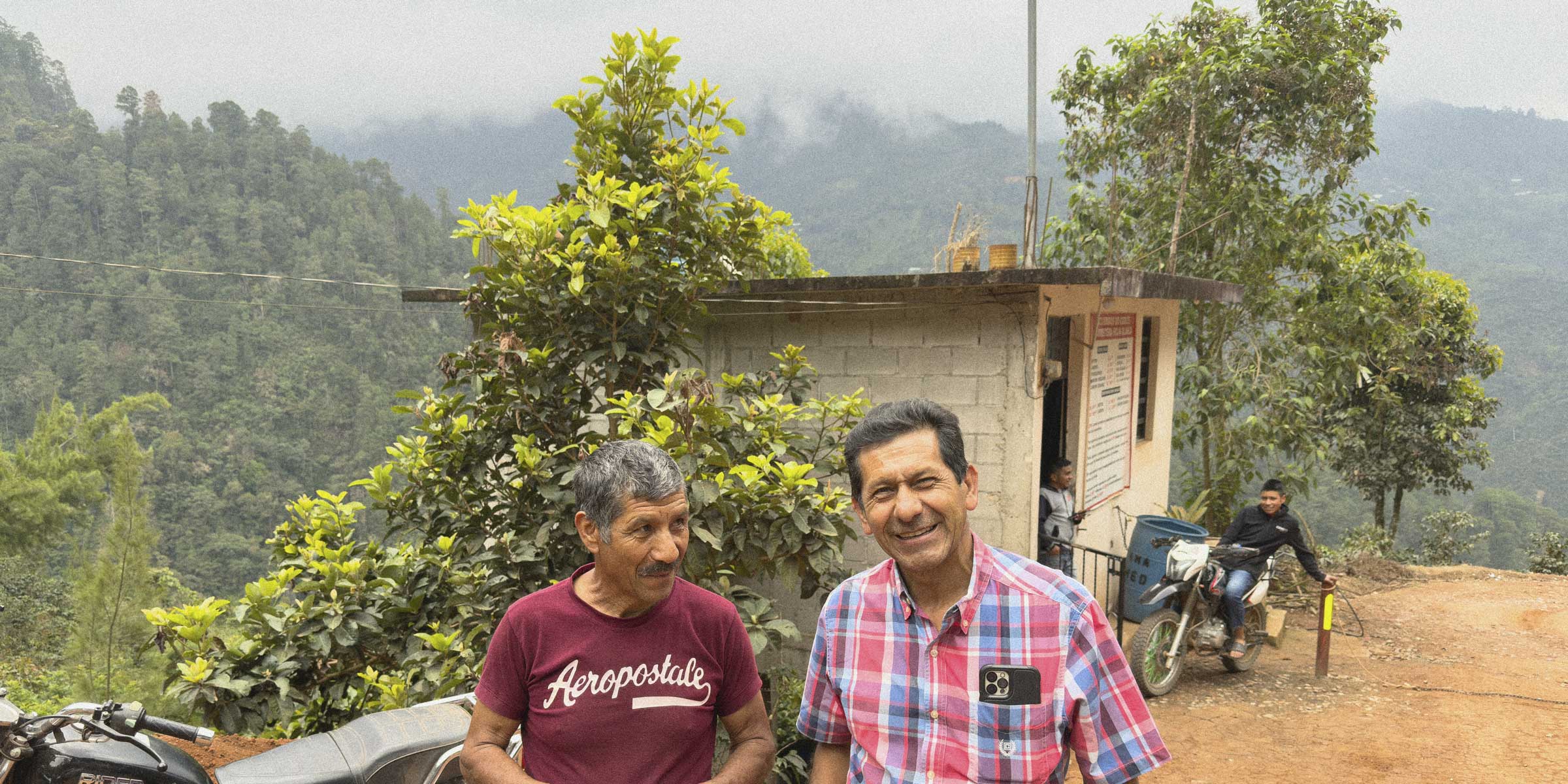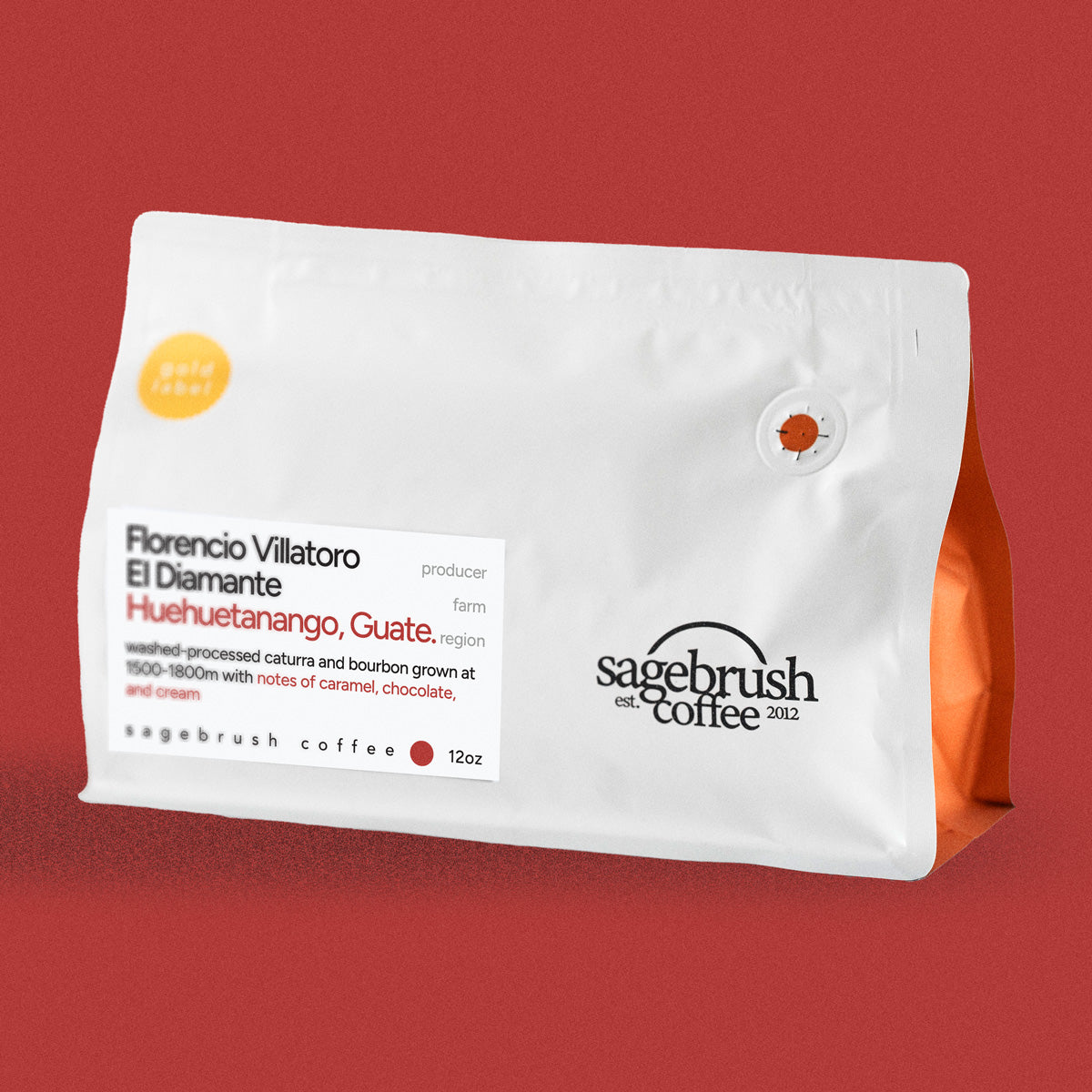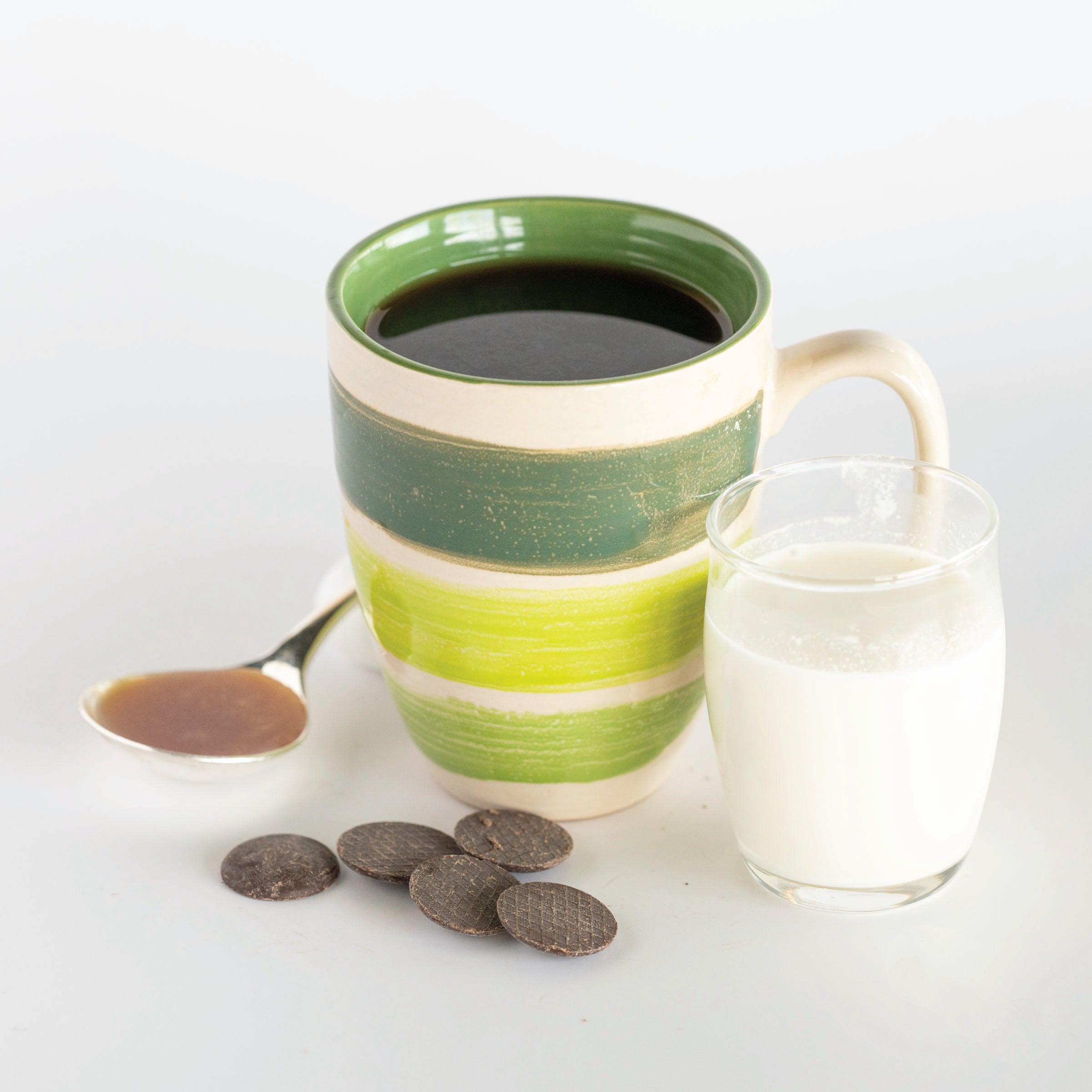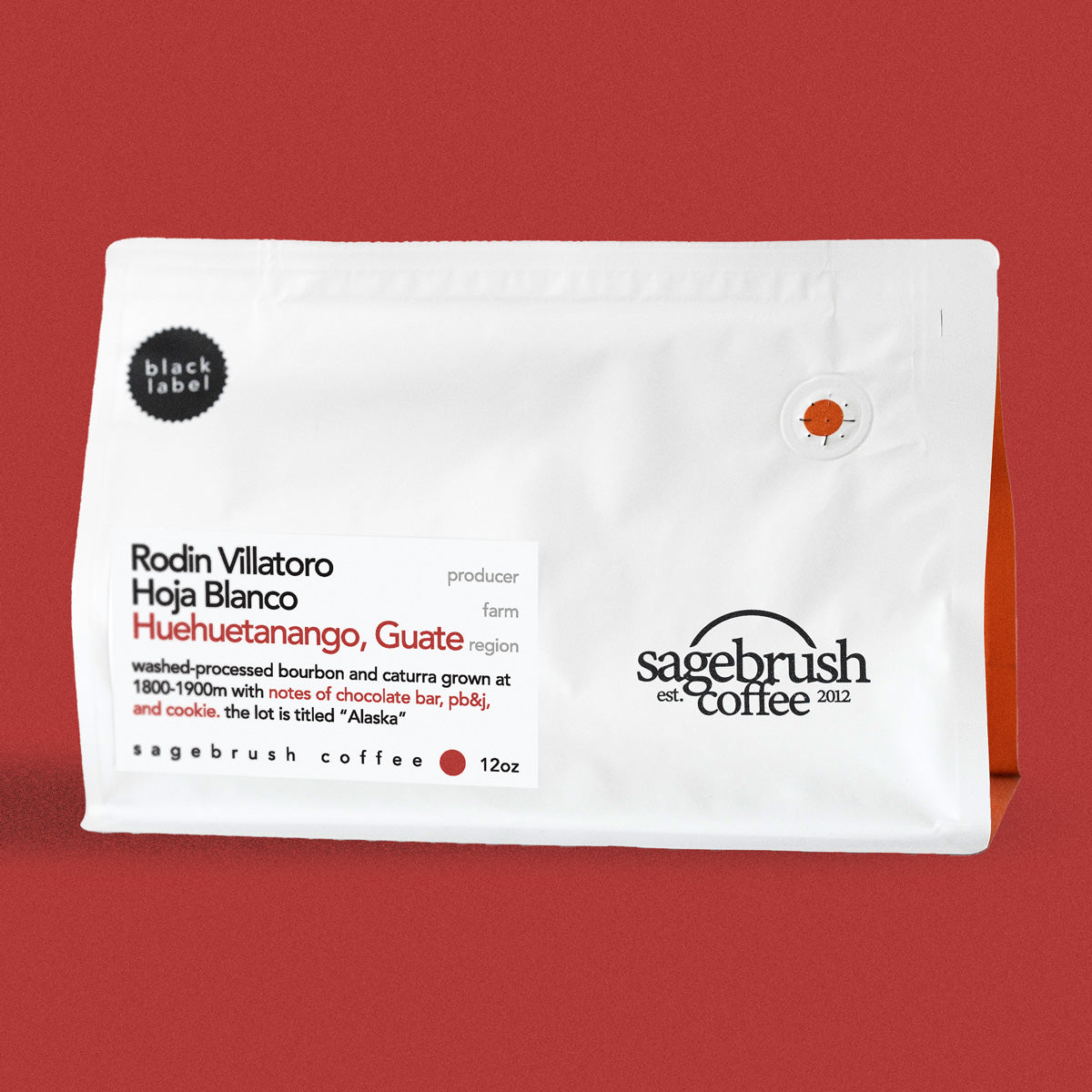Producer Profiles Main Page •
Back to Producers OverviewWhen I think about the Villatoro family, I remember that moment in February at Punta del Cerro when I grabbed a rake and worked alongside them in the rain, protecting hundreds of pounds of drying coffee. It perfectly captured what makes this family special, their quick thinking, their teamwork, and their willingness to roll up their sleeves when work needs doing. The Villatoros have become more than coffee suppliers to us over the years. They're friends who've shown us incredible hospitality, partners who've taught us about perseverance, and producers whose dedication continues to inspire us.
Family Roots in Hoja Blanca
The Villatoro coffee story began in 1956 when Eleodoro Villatoro first came to Hoja Blanca, a remote valley in the western highlands of Huehuetenango near the Mexican border. Before establishing his farm, Eleodoro spent years buying coffee and transporting it by pack animals, walking distances of around 60 kilometers for several days to sell the product. When he finally founded Finca La Esperanza, there were no nearby access roads to reach the department capital. Yet his love for coffee and determination to prosper kept him going.
When Eleodoro passed the farm to his eleven children, it marked the beginning of something bigger than a single farm. His son Aurelio inherited not just land and coffee trees, but a deep understanding of what quality means. Born into the coffee environment, Aurelio initially studied to become a mechanic. After completing his education, he worked in that profession but felt drawn back to La Esperanza. In 1986, he founded his own farm called Villaure, a name combining his surname and first name, starting with a small area but expanding through enthusiasm, dedication, and hard work.
Today, the family enterprise spans five main farms. Aurelio manages Campamento Alto and Punta Del Cerro, while his brothers Florenzio and Pedro run El Diamante and Guayabales respectively. The younger generation has formed Primos Unidos, "Cousins United," with Rodin, Jenner, Rainier, and Michael working together to carry the tradition forward.
A Thoughtful Approach to Quality
The Villatoros' commitment to quality shows in every step of their process. They select perfectly ripe cherries, avoiding green, dry and damaged fruit. Pulping is performed no later than 6 hours after harvest. Fermentation takes place in concrete tanks, with total fermentation time of 24 to 36 hours depending on weather. Coffees are then washed and separated for quality and dried on cement patios.
Rodin Villatoro brings degrees in agronomy, agriculture, and forestry to the family operation, adding technical knowledge and innovation to their already strong foundation. I watched him loading cherries into anaerobic fermentation tanks for a 10-day fermentation process with the precision of someone who truly understands both the science and art of coffee processing. His brother Jenner focuses on sample roasting and cupping, while their cousin Dennis recently graduated university with a focus on farm-level work. Each family member brings their own expertise while maintaining the core values passed down from their grandfather.
The farms themselves sit at elevations between 1600 and 2000 meters above sea level in a unique microclimate. The cool mountain air and resulting slow cherry maturation produce very sweet coffees loaded with fruit and complexity. The steep terrain of their lots makes hand-picking essential but extremely arduous, especially given their proximity to the nearest processing mill.
Our Visit to Punta del Cerro and Hoja Blanca
My February visit to the Villatoro farms remains one of those experiences that reminds me why I love what we do. We started at Punta del Cerro, where the defining moment came while I was out at the drying patios and storm clouds began gathering. Someone in our group asked Don Aurelio what they do when it rains on the drying coffee. Without missing a beat, he handed me a rake and said, "Big piles." For the next hour, I worked alongside the family, raking parchment coffee into protective mounds to cover before the rain hit. There was something beautiful about that shared urgency, everyone moving with purpose, no distinction between visitor and hosts, just people working together to protect the harvest.
The next day brought us to Hoja Blanca, where Don Aurelio's hospitality went beyond what I could have expected, he actually gave me his own room to sleep in while I stayed there. His faith shapes everything he does, from how he welcomes guests to how he leads his family and farm operations. I also saw their new mechanical dryer in action, a crucial investment as weather patterns become less predictable. This equipment helps them maintain consistent quality even when traditional patio drying faces challenges from unexpected rains.
Building a Legacy Together
The Villatoro family's impact extends far beyond their own farms. Since 2002, they have received numerous national and international recognitions for coffee quality, including multiple Cup of Excellence awards in 2002, 2013, 2014, and 2018. Aurelio was recognized as Best Departmental Producer of Huehuetenango by Illy Café in 2003 and Second Best Coffee Producer at the national level in 2004.
But awards only tell part of the story. What matters more is how this family works together despite significant challenges. Finding enough labor for hand-picking remains their biggest obstacle, made harder by the steep terrain and remote location. Coffee leaf rust threatens yields, and volatile market prices create constant uncertainty. Yet they persevere through collective effort and shared commitment.
The third generation now carries this legacy forward with fresh energy and ideas. They see potential to bring their family to the next level while honoring the foundation their grandfather built. Jenner and Rodin are giving continuity to the effort made during many years in the Guatemalan coffee industry, being the third generation in coffee.
Why This Partnership Matters
Working with the Villatoros means more than sourcing excellent coffee. It means supporting a multigenerational family enterprise where knowledge passes from parent to child, where cousins unite to face challenges together, and where tradition meets innovation in meaningful ways. Their quick thinking when weather threatens, their willingness to experiment with new processing methods, their dedication to maintaining quality despite obstacles, these qualities make them remarkable partners.
For us at Sagebrush, it's about knowing the people behind our coffee and understanding their stories. The Villatoros have taught us that great coffee comes from more than good soil and proper elevation. It comes from families who view their work as a calling, who face each harvest with determination, and who welcome visitors as friends rather than customers. Every time we cup their coffee, I remember standing in the rain at Punta del Cerro with rake in hand, working together to protect something precious. That's the spirit we taste in every cup, the spirit of partnership, perseverance, and genuine care for the craft.
Explore Coffees
Florencio Villatoro • Washed-Processed Bourbon







